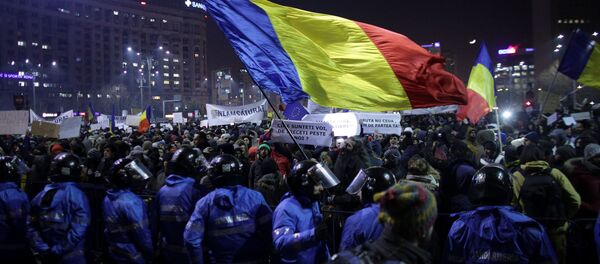Adding credence to this argument is that both anti-government movements started off opposing the authorities’ decision relating to a piece of legislation – be it former President Yanukovich declining to sign the EU Association Agreement, or the current Romanian leadership pushing through its corruption decriminalization proposal – yet they quickly transformed into a regime change movement demanding the ouster of the government. Police have already had to respond to rioters with tear gas, and there’s always the chance that the demonstrations could spiral out of control just like they did in Ukraine. Unlike in the former Soviet republic at the time of its Color Revolution, the Balkan country is already a member of both the EU and NATO, and Bucharest has already committed to hosting an integral component of the US’ so-called “missile defense shield”.
This makes it difficult for some people to argue that the recent nationwide disturbances are a Color Revolution, since it doesn’t seem like there’s any obvious motive for the West to overthrow what visibly appears to be a very friendly government. Yet at the same time, however, it’s undeniable that many NGOs, some of them internationally linked, are playing an influential role in in the latest protest movement. In a sense, what’s happening in Romania looks a lot like what’s been going on in Poland over the past couple of months, where Western-linked NGOs have also tried to destabilize the pro-American government in Warsaw. In both cases, issues of economic sovereignty vis-à-vis Brussels, more so than geopolitical ones in regards to Moscow, might be what are driving the bedlam.
Bogdan Razu Herzog, Romanian author, founder of “Frontiera” think tank, and Adrian Ionescu, Romanian political commentator, commented on the issue.
We'd love to get your feedback at radio@sputniknews.com
Have you heard the news? Sign up to our Telegram channel and we'll keep you up to speed!


